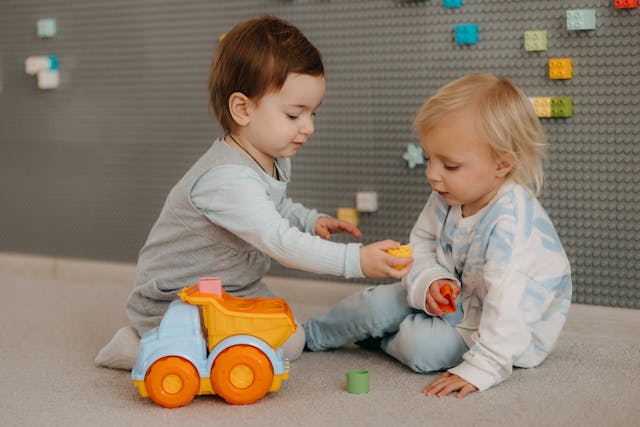Preschool is more than an introduction to numbers, letters, and shapes. It’s a formative time when young minds and bodies develop foundational skills that influence lifelong growth. Holistic and experiential learning approaches focus on engaging children in hands-on activities and fostering social, emotional, and cognitive growth simultaneously. Schools like klaschools.com often integrate these principles to offer a nurturing and progressive environment for preschoolers.

What Is Holistic Learning for Preschoolers?
Holistic learning ensures that every aspect of a child’s development is supported. It doesn’t just focus on academics but also on emotional well-being, social skills, and physical health. Preschoolers thrive when they feel understood, safe, and inspired.
In this method, a child is seen as a whole person with unique strengths and challenges. Teachers incorporate a variety of activities, such as music, art, and movement, alongside academic instruction. This approach helps children develop critical problem-solving skills and encourages creativity. Parents often notice that holistic education creates a strong foundation for adaptability and confidence in their children.
Why Experiential Learning Creates Deeper Connections
Experiential learning allows preschoolers to learn through hands-on activities and real-world experiences. Instead of passively listening to lessons, children actively engage with their environment and apply what they learn.
For example, planting seeds in a school garden can teach children about science, responsibility, and the importance of patience. Building a structure with blocks can introduce early math concepts and teamwork. These moments create memorable learning opportunities that reinforce critical skills.
By engaging multiple senses, experiential learning builds stronger neural connections in young minds. It fosters curiosity and enthusiasm for discovering the world around them, laying a foundation for a lifelong love of learning.
Key Benefits of Holistic and Experiential Learning
Preschool is a critical time in a child’s development, where they build foundational skills that shape their future learning and interactions. Holistic and experiential learning are transformative approaches that aim to nurture the whole child, balancing cognitive, emotional, social, and physical growth. By engaging children in hands-on activities and encouraging emotional well-being, these methods go beyond traditional education to create enriching, meaningful experiences.
Emotional and Social Development
- Activities that encourage collaboration, like group art projects, help preschoolers learn teamwork and empathy.
- Teachers focus on nurturing self-awareness and emotional regulation, preparing children to handle challenges.
- A safe, supportive environment builds confidence and resilience.
Cognitive Growth
- Hands-on activities encourage critical thinking and problem-solving.
- Interactive lessons help children retain information longer by connecting it to real-life scenarios.
- Creative exercises, such as storytelling or imaginative play, develop language and literacy skills.
Physical Development
- Movement-based activities improve motor skills and overall health.
- Children learn through sensory exploration, which supports their physical coordination.
- Outdoor play builds strength and instills a love for physical activity.
How Holistic Approaches Support School Readiness
Parents often wonder if a holistic education prepares children for the structure of elementary school. The answer is a resounding yes.
Holistic methods equip preschoolers with essential skills like focus, collaboration, and adaptability. These skills enable them to succeed academically and socially in formal school settings. By nurturing the whole child, holistic approaches ensure children are emotionally ready for transitions and capable of tackling new challenges with confidence.
What Should Parents Look for in a Preschool?
Choosing a preschool is an important decision for any parent. Look for signs that the school values holistic and experiential learning.
- Teachers who create a warm, welcoming environment where children feel valued.
- Classrooms that encourage exploration, with plenty of materials for hands-on activities.
- A curriculum that balances academics with social, emotional, and physical growth.
- Regular communication between teachers and parents to track progress and address concerns.
When visiting schools, ask about their approach to learning and observe how children interact with their environment. A preschool that prioritizes hands-on activities and emotional development is likely to offer a nurturing and enriching experience for your child.
Setting Your Child Up for Lifelong Success
Holistic and experiential learning help preschoolers build essential skills and instill a love for exploration and discovery. These approaches provide a balanced foundation, preparing children for both academic success and personal growth.
By choosing a preschool that emphasizes these principles, parents give their children the tools they need to thrive in an ever-changing world. Look for schools that value the whole child and engage young minds with meaningful, hands-on experiences.
Help Your Child Grow With the Right Preschool
Finding a preschool that nurtures your child’s emotional, cognitive, and physical development is key to ensuring a happy and successful start to their educational journey. Consider how schools prioritize holistic and experiential learning to foster curiosity and growth. Take the first step toward shaping your child’s future by visiting preschools and learning about their approaches.
















Add Your Comment